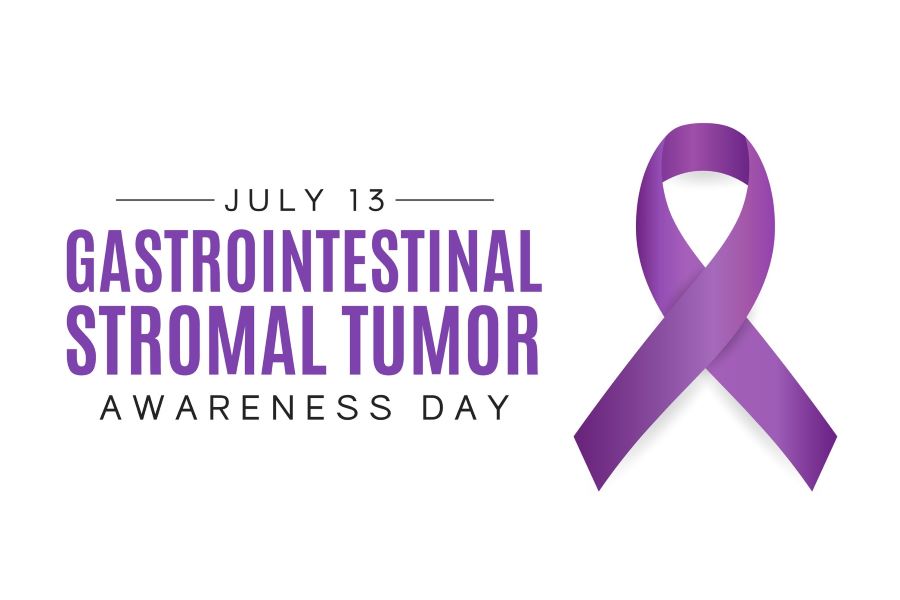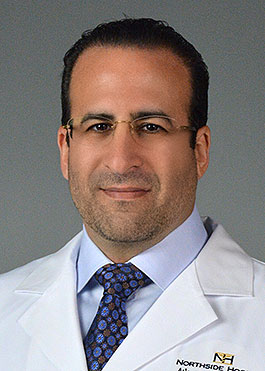
Gastrointestinal stromal tumors (GISTs) are rare tumors that originate in the muscle layer of the gastrointestinal (GI) tract. They usually grow slowly, often over several years, and sometimes even decades. However, because of their potential to spread to other parts of the body, GISTs are considered a type of cancer. They arise from the so-called “pacemaker” cells within the muscle layers of the GI tract. The most common locations for GISTs are the stomach and small intestine, while esophageal and colorectal GISTs are rare.
Most GISTs are small and found in the stomach, sometimes incidentally during an upper endoscopy performed for unrelated symptoms. On occasion, GISTs cause GI bleeding or anemia. Once diagnosed, a complete evaluation is required, including an endoscopic ultrasound and full-body CT scans.
Small gastric GISTs under two centimeters in size can often be safely observed with serial endoscopy and imaging due to their expected slow growth and low-risk behavior. This is especially appropriate for older patients or those with medical conditions that make surgery riskier.
Patients with medium and larger gastric GISTs are recommended to have surgery that includes the tumor and a portion of the healthy stomach around it. This can often be accomplished with robotic surgery, which allows greater minimally invasive visualization and dexterity for the surgeon and a shorter recovery compared to traditional open surgery for the patient. Patients with small intestinal GISTs are almost always recommended to undergo surgery due to the modestly higher risk of these tumors.
In rare cases, localized GISTs may require more complex surgery, such as major gastrectomy with gastrointestinal reconstruction or resection of additional organs, such as a portion of the neighboring pancreas, spleen or colon. These types of procedures may still be performed with the assistance of the robotic platform. However, some of these patients may benefit from consulting with a medical oncologist to see if an oral medication given for several months before surgery will help to limit the extent and risks of surgery. The choice and dosing of this medication are typically decided based on specific genetic mutations found in the patient’s specific GIST biopsy specimen.
On occasion, we evaluate patients who have been diagnosed with metastatic GIST, meaning the tumor has already spread to other parts of the body, such as the peritoneum or lining of the abdomen, or the liver. While medical therapy is the mainstay of treatment, surgery should ultimately be considered if there is a good response to the medical therapy, if all visible tumors can be safely removed. The patient is physically fit and nutritionally optimized for major surgery. Recent data further supports the role of surgery for these patients, as tumors that are in place for a long time will eventually develop additional mutations, making them resistant to medications. Rarely, patients with GIST have genetic conditions that must be diagnosed early to facilitate safe surgery, as they may have other types of tumors that need to be treated to undergo anesthesia safely.
In short, GISTs are best managed within a high-volume, multidisciplinary team that includes fellowship-trained surgical oncologists, experienced medical oncologists, advanced gastroenterologists, pathologists, radiologists and genetic counselors. At Northside Hospital Cancer Institute, Atlanta Liver and Pancreas Surgical Specialists offer a high-volume, comprehensive program for patients with GISTs with excellent outcomes. A weekly multidisciplinary conference allows a detailed review and discussion of cases to help select the optimal treatment plan for each patient. Our minimally invasive robotic surgery program for GIST and other upper gastrointestinal, hepatobiliary and pancreatic tumors is also among the busiest in the Southeast. From the clinic visit to the operating room to the bedside in the hospital, we are proud that caring for patients with rare tumors, such as GISTs, is very common for our team.
Learn more about the Northside Hospital Cancer Institute Liver & Pancreas Program.


